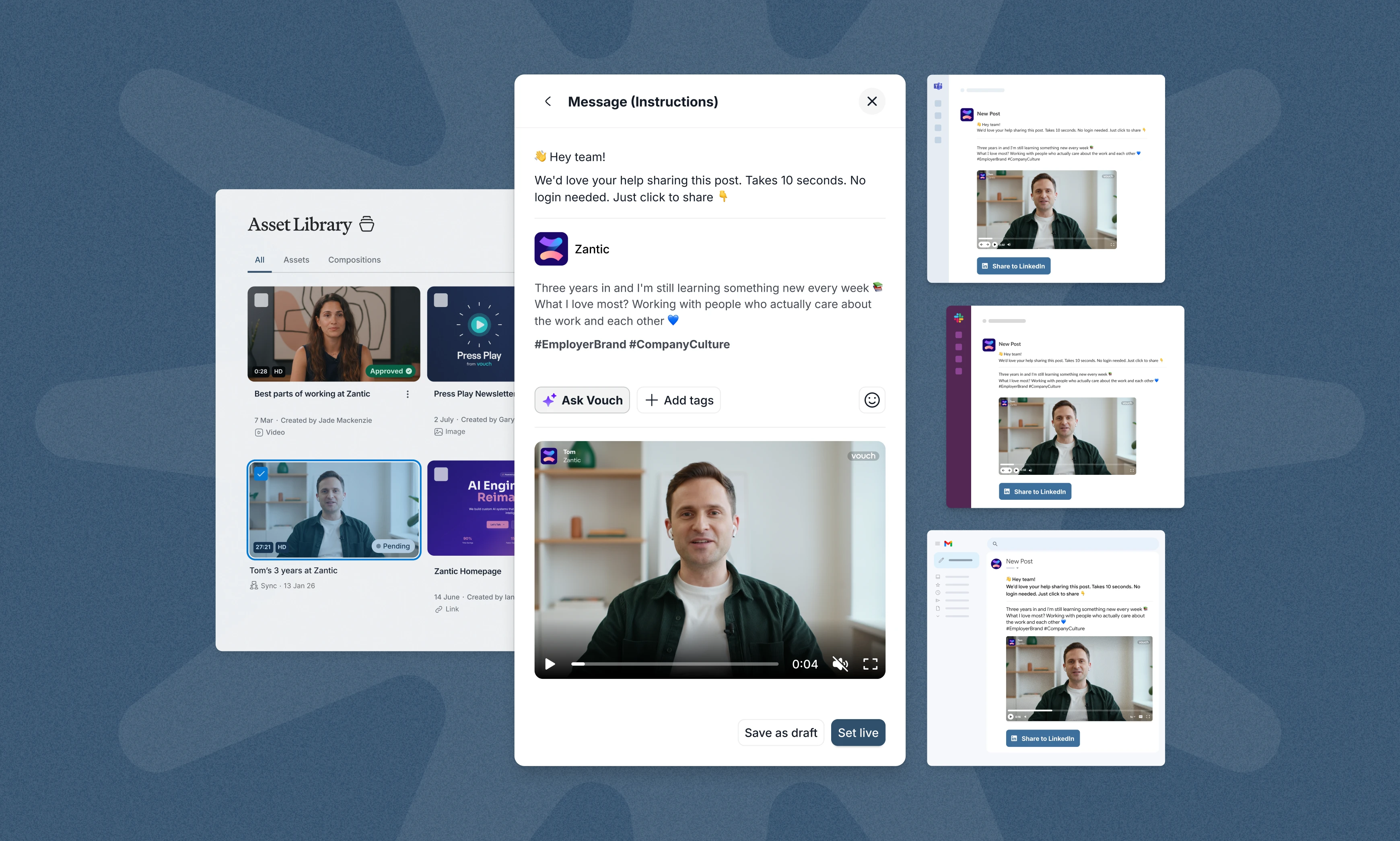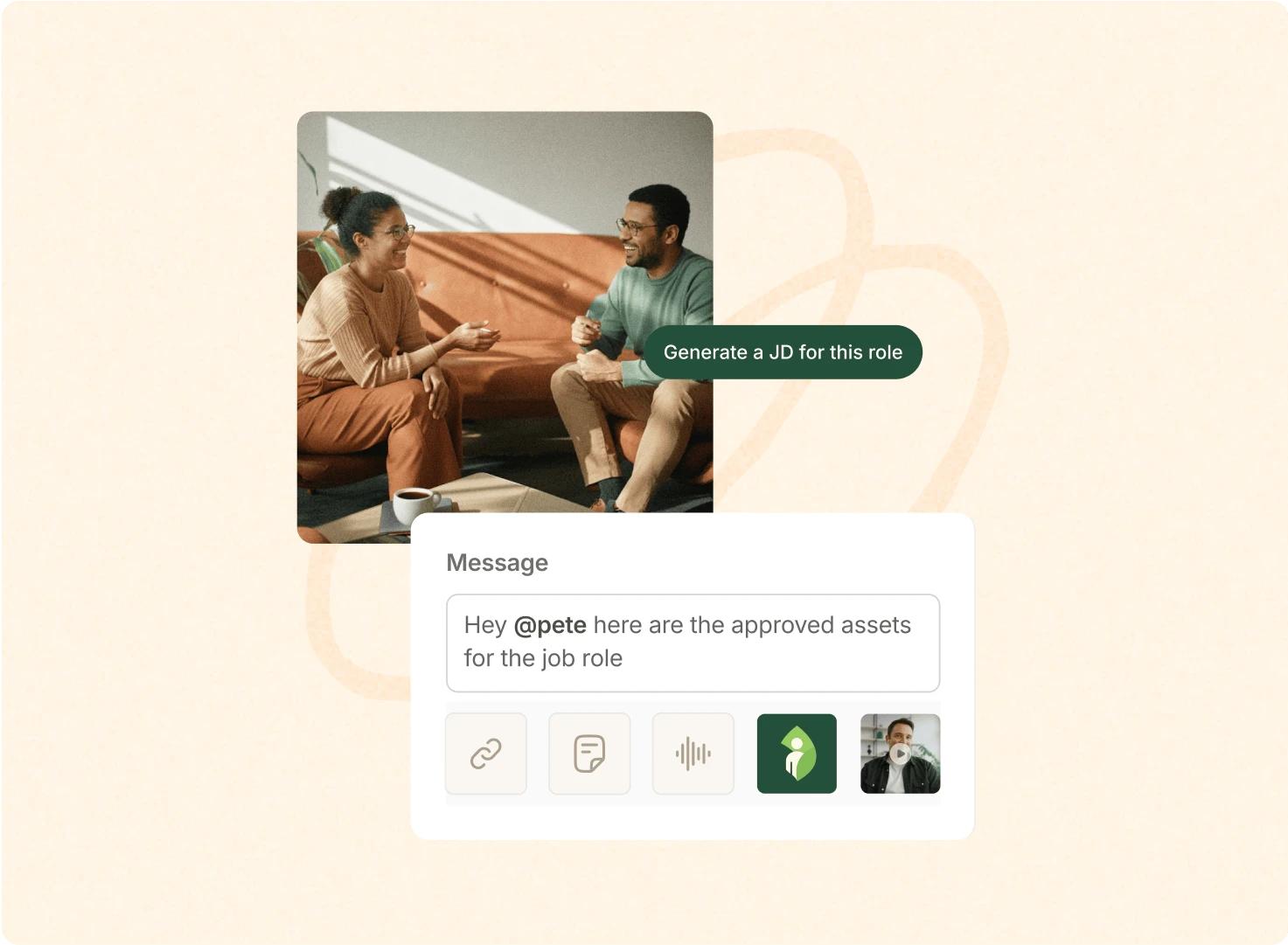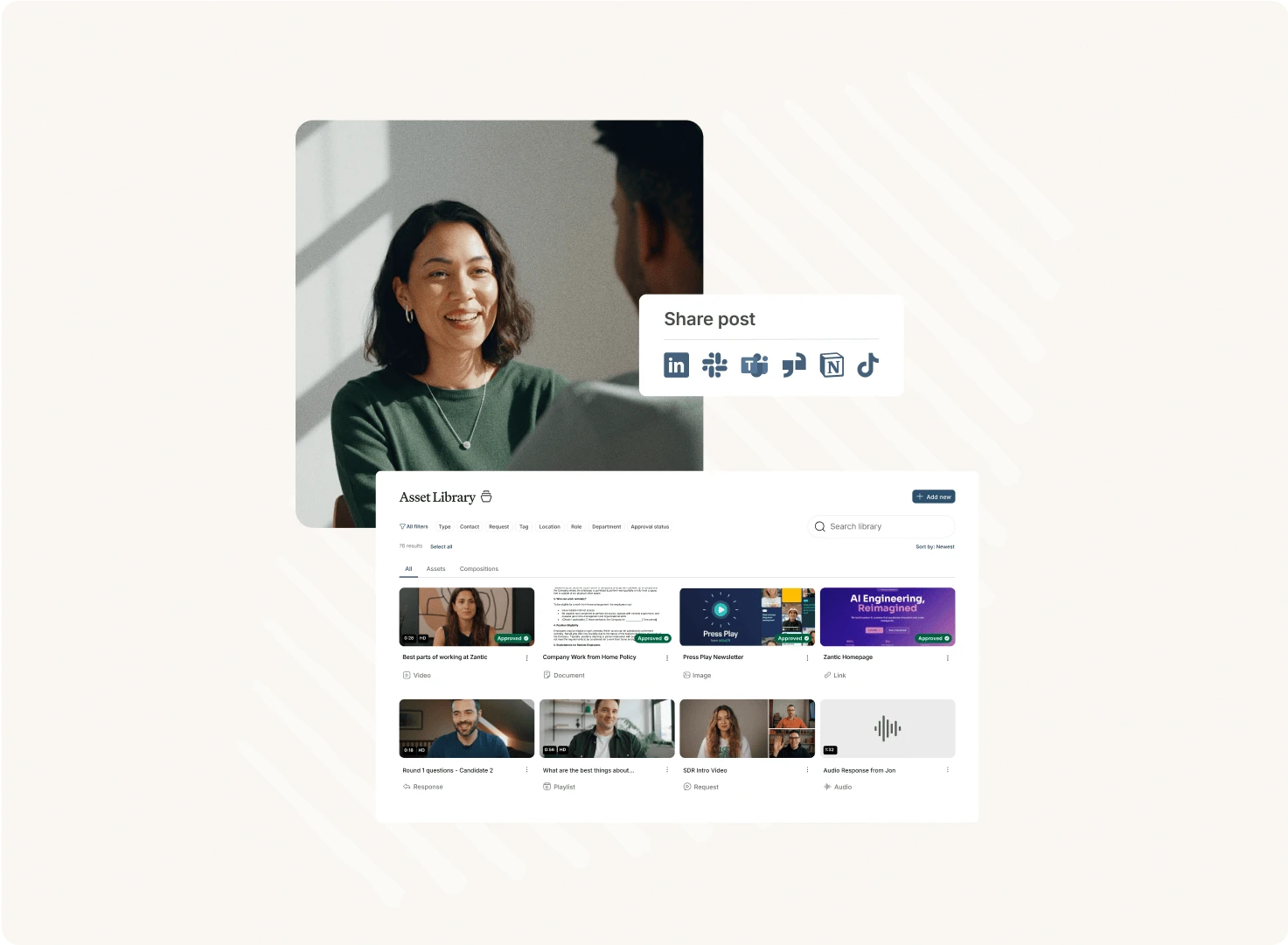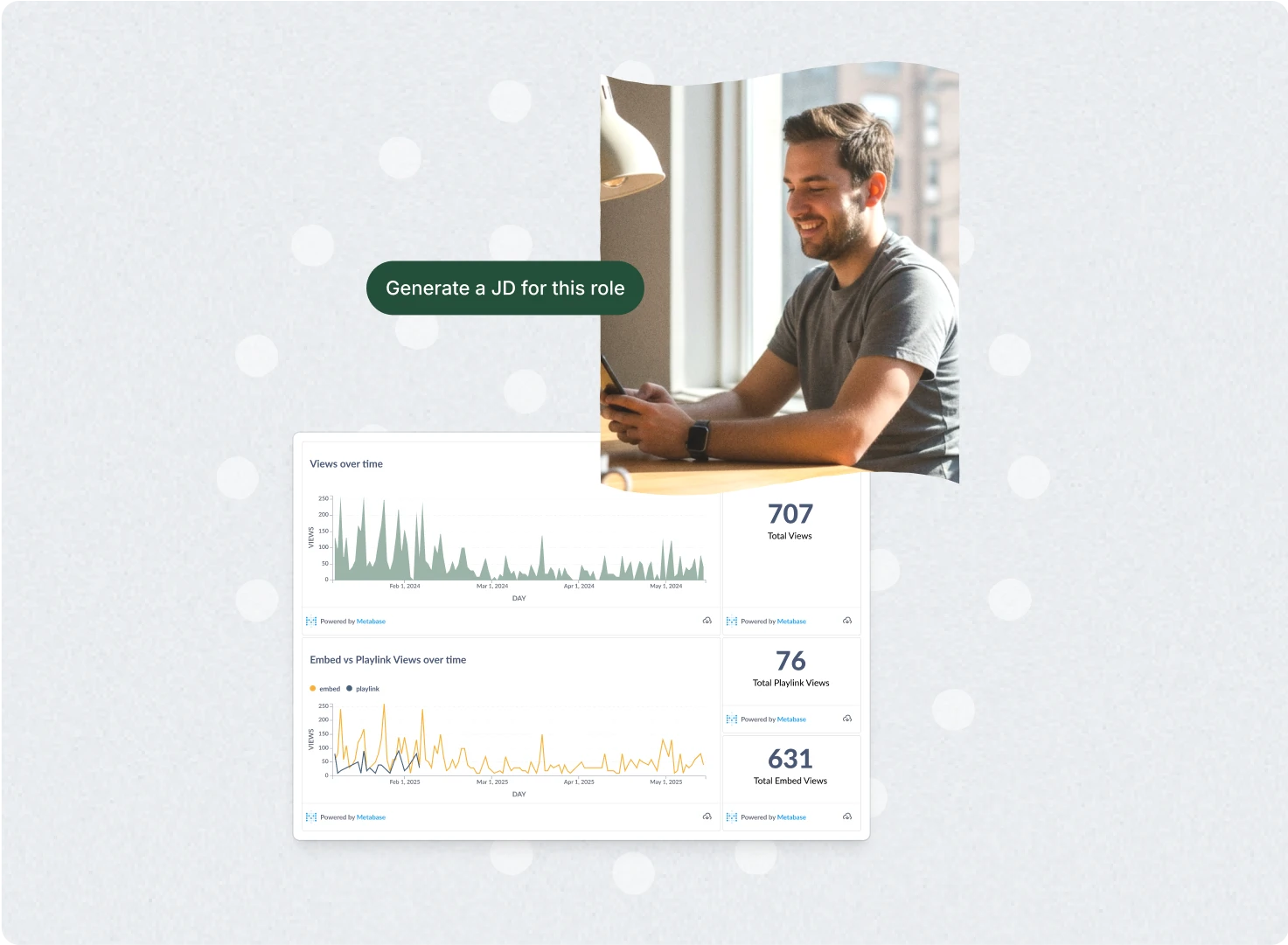For HR professionals, attracting top talent is crucial to the success of your organization.
Yet, in today's competitive job market, it's not enough to simply post a job opening and hope for the best. You need a strategic approach to recruitment that helps you stand out from the crowd and connect with the right candidates.
This is where candidate personas come into play.
Candidate personas, also known as talent personas, are fictional representations of your ideal job candidates. They are based on research and analysis of your target audience, taking into account their demographics, goals, motivations, and preferences.
By creating candidate personas, HR teams, and recruiters can gain valuable insights into their target candidates and tailor their recruitment strategies accordingly.
But do HR teams really need candidate personas in 2026?
The short answer is yes!
So, let's get started.
What Is The Definition Of A Candidate Persona?
A candidate persona is a semi-fictional representation of an ideal candidate for a specific job or position within an organization.
It goes beyond basic demographic information and delves into the motivations, goals, challenges, and preferences that shape a candidate's decision-making process (like a user persona marketing teams use).
The primary role of candidate personas in recruitment is to help HR teams gain a deep understanding of their target talent pool. By creating detailed personas, recruiters can tailor their strategies and tactics to attract, engage, and convert top candidates effectively.
The other benefit of candidate personas is that you can target people who fit your company culture and who can help you build your employer brand so you can become a go-to employer.
Top 5 Candidate Persona Fields:
A candidate persona is a comprehensive profile of the ideal candidate and their motivations. These include:
- Demographic Information: This includes details such as age, gender, education, and location. While important, it is only the starting point for creating a well-rounded candidate persona.
- Professional Background: This encompasses the candidate's work experience, skills, qualifications, and certifications. Understanding a candidate's professional background helps tailor recruitment efforts to specific roles.
- Goals and Motivations: This delves into the candidate's career aspirations, long-term goals, and what motivates them to seek new opportunities. Identifying goals and motivations helps HR teams align their recruitment messaging and opportunities with candidate desires.
- Challenges and Pain Points: Every candidate faces challenges and pain points in their professional journey. By understanding these challenges, HR teams can position their organization and job opportunities as the solution to the candidate's problems.
- Communication and Media Preferences: Candidates have different communication styles and media preferences. Knowing if candidates prefer email, video communications, social media, or phone calls allows recruiters to engage them effectively throughout the recruitment process.
The AI-enabled workspace for talent teams.
- Unified workspace for talent teams
- Accelerate hiring with AI tools
- Auto-generate polished hiring and employer brand content
- Easily repurpose assets across all channel
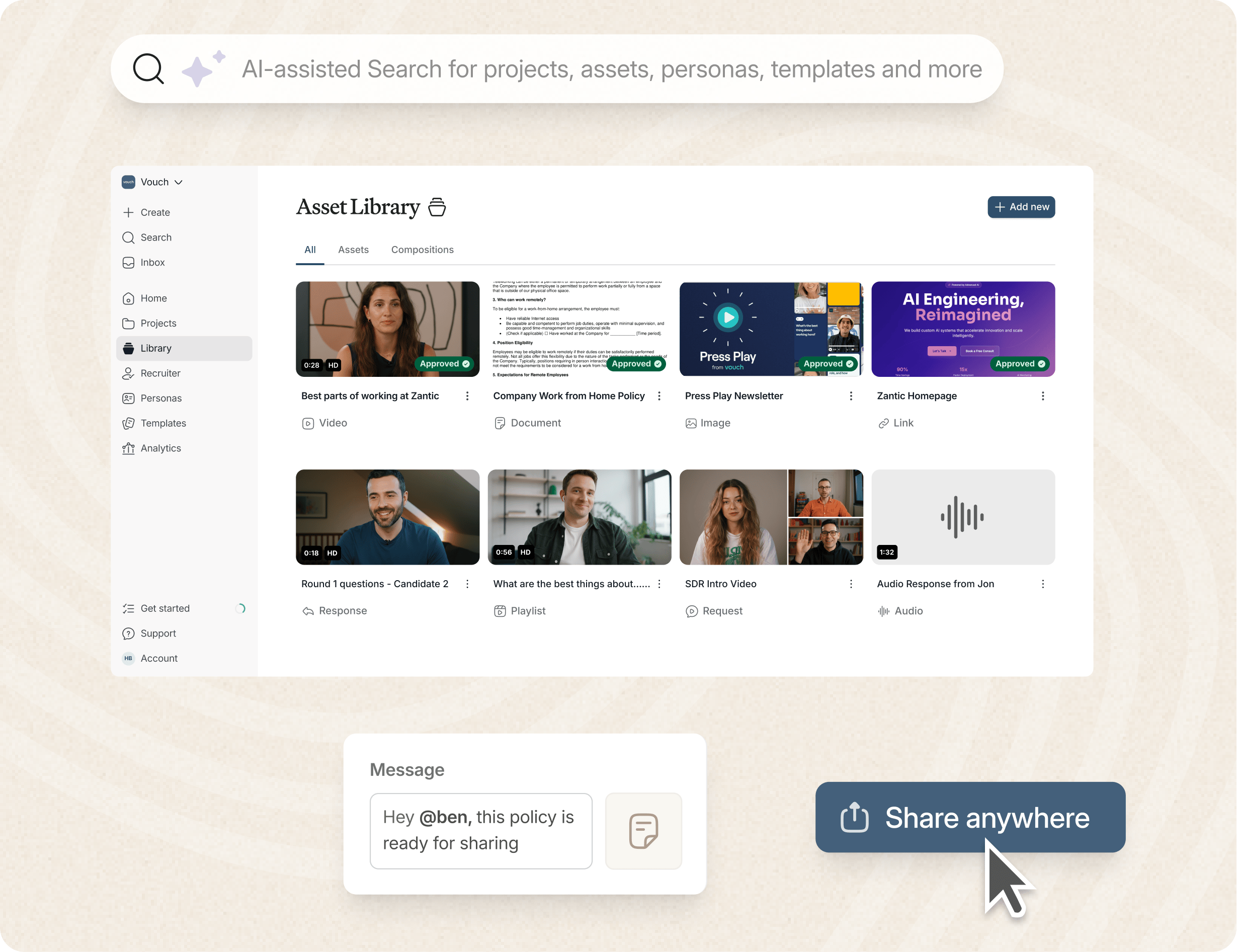
What Are The Similarities between Candidate and Buyer Personas?
Candidate personas bear resemblances to buyer personas commonly used in marketing. Both types of personas involve creating detailed profiles based on research and data.
However, there are distinct differences in the information collected and the goals of each persona:
- Candidate personas focus on understanding potential job candidates, while buyer personas concentrate on understanding customers and their purchasing decisions.
- Both personas aim to uncover the motivations, goals, challenges, and preferences of their respective target audience.
- While candidate personas inform recruitment strategies, buyer personas guide marketing strategies to reach and engage potential customers effectively.
By leveraging the power of candidate personas, HR teams can better align their recruitment efforts with the needs of top talent, ultimately attracting and securing the best candidates for their organization.
Can Candidate Personas Improve Recruitment ROI and KPIs?
Absolutely! One of the significant advantages of utilizing candidate personas is the improvement in recruitment return on investment (ROI) and KPIs.
With a clear understanding of your ideal candidate's characteristics, you can tailor your recruitment processes, targeting ideal individuals. This targeted approach helps reduce the number of unqualified applicants, ultimately saving time and resources for your HR team.
Additionally, by aligning your recruitment activities with the preferences and interests of your target candidates, you increase the likelihood of attracting top talent and reducing the time required to fill open positions.
1. Reducing Time-to-Hire and Cost-per-Hire
Implementing candidate personas can significantly reduce both the time-to-hire and cost-per-hire metrics. Candidate personas streamline your hiring journey at almost every step!
With well-defined candidate personas, you can optimize your sourcing and screening processes, ensuring a more efficient candidate selection process. By focusing only on candidates who align with your personas, you reduce the time spent on reviewing irrelevant applications, shortening the overall time-to-hire.
Moreover, by attracting candidates who are more likely to succeed within your organization, you reduce employee turnover and associated costs. Combined with modern recruitment tools like Vouch video, you can drastically bring down both your time to hire and cost per hire!
2. Boosting Candidate Retention and Employee Engagement
Candidate personas also play a vital role in improving candidate retention rates, as well as employee engagement and motivation.
When you attract candidates who align with your organizational culture, values, and career aspirations, they are more likely to stay with your company for the long term - driving long-term success.
This not only reduces turnover but also creates a workplace environment that fosters personal and professional growth, ultimately boosting employee engagement and productivity.
3. Aligning Recruitment with Company Culture
We touched on this earlier, but one of the biggest benefits of candidate personas is your company culture. Candidate personas allow HR teams to understand the characteristics and values that resonate with candidates who are the best fit for the organization.
By aligning recruitment efforts with company culture, HR teams can attract candidates who not only meet the required skills and experience but also align with the organization's core values, leading to better employee engagement and retention.
4. Streamlining the Hiring Process and Enhancing Employer Branding
Candidate personas streamline your hiring journey at almost every step!
By understanding the specific needs and expectations of candidates, HR teams can craft compelling job descriptions and personalized candidate experiences. This not only attracts top talent but also enhances employer branding, showcasing the organization as an employer of choice.
How Do You Create An Effective Candidate Persona?
In order to attract top talent and optimize your recruitment strategy, it is crucial to create effective candidate personas. This section will guide you through the process of collecting and analyzing the right data to inform your candidate personas, as well as developing a comprehensive candidate persona template for consistency and efficiency.
1) Collect and Analyze the Right Data
When creating candidate personas, consider using a combination of qualitative and quantitative research methods, such as surveys and interviews, and analyzing existing employee data.
Start by conducting thorough research with your ideal current employees using tools like Vouch and analyze these responses. This is a great first step to determining the key demographic and psychographic information that will shape your personas.
2) Develop a Comprehensive Candidate Personas
A comprehensive candidate persona template serves as a framework to organize and document your findings. Start by outlining the key sections of your template, including demographic information, professional background, motivations, and challenges.
Within each section, provide specific details based on the data you have collected. For example, under professional background, include information about previous roles, experience level, and industry knowledge. Be sure to include both job-related and personal interests to create a holistic view of your ideal candidate.
By utilizing a consistent and well-structured candidate persona template, you can easily communicate and share insights with your HR team and hiring managers, ensuring a solid understanding of your target audience throughout the recruitment process.
3) Gather and Apply Industry Insights
Developing accurate candidate personas also requires gaining insights into your industry and understanding the needs and preferences of your target candidates. To do this:
- Conduct thorough market research to identify industry trends, competitor strategies, and the challenges faced by candidates in your field.
- Connect with industry experts, attend conferences, and participate in online communities to gather valuable insights and perspectives.
- Engage with employees and candidates through video surveys, interviews, and focus groups to gain direct feedback on their experiences and expectations.
4) Refine your Job Descriptions and Recruitment Marketing Tactics
Once you have gathered industry insights and all the data you need, it's time to refine your job descriptions and recruitment marketing efforts to attract suitable candidates.
Simply follow these steps:
- Use the gathered insights to identify the key qualifications, skills, and characteristics that your ideal candidates possess.
- Craft compelling and accurate job descriptions that highlight the unique aspects of your organization and the opportunities for growth.
- Tailor your recruitment marketing materials to resonate with your target candidates, showcasing the value proposition of joining your company.
- Optimize your job postings for search engines by including relevant keywords and phrases that potential candidates are likely to search for.
5) Utilize Templates for Consistency and Efficiency
To ensure consistency and efficiency in creating candidate personas, it is recommended to utilize templates.
Here's how:
- Find or create a candidate persona template that suits your organization's needs. This template should include sections for demographics, goals, pain points, motivations, and preferred communication channels.
- Fill in the template using the gathered industry insights, ensuring that each persona accurately represents a specific segment of your target candidate pool.
- Regularly review and update the templates as your industry evolves and candidate preferences change.
By following these steps, you can develop comprehensive and effective candidate personas that will guide your HR team in attracting top talent and aligning your recruitment strategies with the needs of your ideal candidates.
Should Candidate Personas Be Long, Or Short?
In our opinion, they should be short.
Candidate personas work best when they are simple and easy to remember. While extensive and longer personas can look impressive internally, the problem is that there is too much information to remember. Try to stick to two A4 pages at maximum, with 5-7 sections like in our framework example above.
FAQs
What is an Ideal Candidate Persona?
An ideal candidate persona is a semi-fictional representation of the perfect candidate for a specific job role. It includes key attributes like soft skills, personality traits, technical skills, career goals, and the type of person who would be a great fit within the company culture. This persona story provides a deep understanding of what the ideal hire looks like and serves as a powerful tool for recruitment teams to identify quality candidates during the recruitment process.
How Does Creating a Candidate Persona Template Improve the Hiring Process?
Creating a candidate persona template allows hiring teams to have a 360-degree view of their target candidate. By defining common traits, professional experience, and preferred communication style, recruiters gain valuable insights into the type of candidates that align with the company’s core values and recruitment strategies. This leads to a more focused recruitment funnel, improving the quality of the candidate pool and ultimately leading to more successful hires.
How Can Recruitment Teams Leverage Candidate Personas to Enhance Recruitment Marketing Efforts?
Candidate personas are an essential part of recruitment marketing efforts. They help talent acquisition recruitment teams tailor their video messaging and target the right prospective candidates on job boards, social media posts, and other usual platforms. By understanding the ideal job candidate's career aspirations and personal goals, recruitment teams can create more engaging job postings and cover letters, enhancing the overall candidate experience and strengthening employer branding.
What Role Do Soft Skills and Personality Traits Play in Developing Candidate Personas?
Soft skills and personality traits are critical components of a well-defined candidate persona. These traits offer a more detailed insight into whether a candidate will be a good culture fit and how they will interact with current employees and key stakeholders. Incorporating these elements into the candidate persona profiles allows the hiring team to find candidates who not only have the right technical skill sets but also the personal traits that align with the company's core values and contribute to an inclusive work environment.
How Can Companies Use Candidate Personas to Optimize Their Recruitment Process?
By using candidate personas, companies can streamline their recruitment process by focusing on the specific type of candidate that matches the role. This involves crafting a generic job description into a more targeted one, based on the ideal candidate persona. This approach reduces employee turnover rates by ensuring that the selected candidates have a clear alignment with the company’s expectations and the current job title. Additionally, this method aids in reducing the cost per hire by narrowing down the pool of candidates to only those who are most qualified and likely to succeed in the current position.
How Do Candidate Personas Influence the Interview Process?
The interview process can be tailored using candidate personas by focusing on the specific career trajectory, communication style, and technical skill sets outlined in the persona. This allows interviewers to ask more relevant questions that dig deeper into the candidate's story and determine if they are a best-fit candidate for the role. Additionally, understanding the candidate journey through the persona helps in creating an interview experience that resonates with the candidate, leading to better candidate profiles and higher employee retention rates.
What Are the Benefits of Developing a Candidate Persona in the Tech Industry?
In the tech industry, where roles can be highly specialized, developing a developer candidate persona can lead to more precise recruitment. This involves identifying specific experience levels, education levels, and professional goals that are common among successful tech hires. By focusing on these common themes and composite sketches of real people, companies can enhance their recruitment efforts and create job scorecards that accurately reflect the ideal hire. This iterative process helps in creating a pool of qualified candidates who are more likely to thrive in both the current role and within the company’s broader career goals.
Conclusion
Candidate Personas are fictional representations of ideal job candidates based on comprehensive research, encompassing demographics, motivations, challenges, and preferences.
The benefits of candidate personas include improving recruitment ROI, reducing time-to-hire, and enhancing your workplace culture by hiring the right people. The key is to keep your candidate personas short and memorable.
See Why Leading HR Team Use Vouch!
Loved by companies like Canva, Nike, Cisco, HubSpot, Amazon and more, tools like Vouch make leveraging video in your business remarkably easy.
Be sure to book a Vouch demo today and chat with a video content expert.
You might also like

Elevate Your Brand Today With Vouch
Discover how Vouch can accelerate talent acquisition while helping you stay on-brand.

